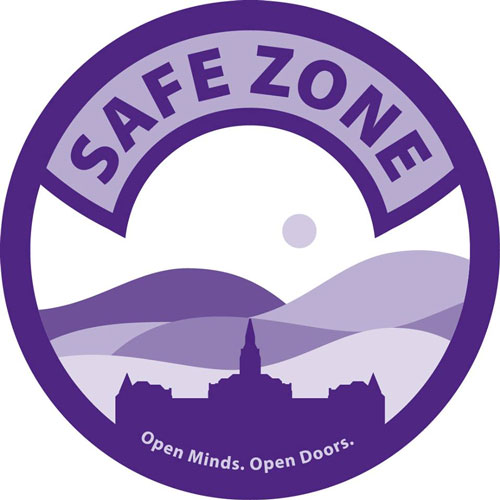October 20, 2020
Safe Zone Advanced Workshop: Sexuality and Gender Identity

The Safe Zone program, in the Department of Diversity and Multicultural Student Affairs, invites anyone who has completed a Safe Zone Introductory Training to participate in the Safe Zone Advanced Workshop on Sexuality and Gender Identity and Authentic Allyship from 1-2:30 p.m. Wednesday, Oct. 21, via Zoom.
Register here for the Oct. 21 Safe Zone Advance Workshop on Sexuality and Gender Identity.
Safe Zone has paired up with its partners in the LGBT Resource Center to offer an advanced workshop for faculty, staff, student and community members who wish to learn more about sexuality and gender identities. This advanced workshop centers on sexuality and gender identity minorities and creating a basic understanding of the issues faced by our LGBTQ+ students, staff and faculty. The workshop will include a primer on developing knowledge of terminology and concepts within the LGBTQ+ community. In addition, the session engages the development of meaningful ways to provide an open and affirming educational environment for all students and community members.
The link will be sent out to those who have registered for the Safe Zone workshop before the event.
Safe Zone continues to be part of Kansas State University's efforts to create an open and affirming campus since the 1970s. Safe Zone was created to help those facing sexual orientation discrimination. Revitalization of the initiative in 2002 created a more comprehensive and ever-evolving Safe Zone effort to fit the needs of current K-State community members. Allies become educated to help those coming from a variety of backgrounds and identities with needs concerning exclusionary acts like intimidation, micro and macro aggressions, discrimination, LGBTQ-related concerns or sexual violence.
For more information, contact Debra Bolton, director of intercultural learning, at dbolton@k-state.edu; or Brandon Haddock, coordinator of the LGBT Resource Center, at bhaddock@k-state.edu.